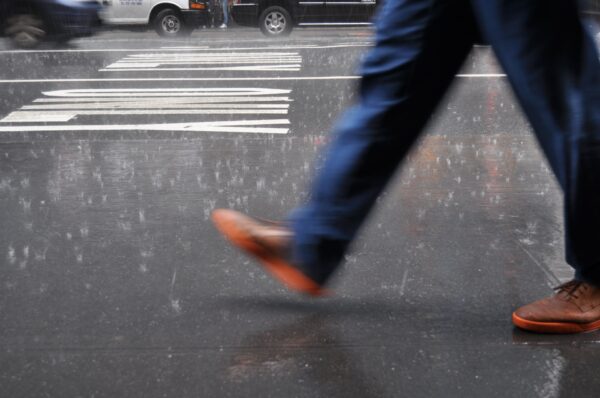
By definition, the term ‘slip and fall‘ refers to a personal injury claim filed when someone is injured due to a slip, trip, and fall on someone else’s property. A slip and fall accident is a form of negligence that falls under the legal concept of premises liability. As the name implies, slip and fall accidents hold that property owners may be legally responsible for any injuries on the owner’s premises if those injuries are a direct result of the property owner’s negligence. By law, all property owners must exercise reasonable care in maintaining their property and have a legal responsibility to keep their properties safe for guests, visitors, customers, and patrons.
What Kind of Slip and Fall Accidents are There?
Slip and fall hazards vary with the seasons and circumstances. Outside, ice and snow left to accumulate on walkways, parking lots, stairways, and sidewalks in the winter months can have serious consequences. Inadequate lighting in parking lots and walkways can lead to tripping accidents over uneven surfaces, potholes, and cracks. Inside or outside, poorly illuminated stairways and steps can also lead to slip and fall problems resulting in serious injuries. Inside, slippery floors, loose or broken flooring or steps, waxed stairs, missing handrails, carpets with curled edges, or those that are torn, worn, or bulging can cause a fall; electrical cords or wiring haphazardly construed and left out can trip up a passerby; debris and clutter left in pedestrian walkways—all of these conditions may cause a slip and fall accident that can lead to a personal injury claim.
Who’s Liable for a Slip and Fall Accident?
In any personal injury case, but especially premises liability, determining who is responsible presents its own set of challenges. Maine has a ‘comparative fault’ system, a legal concept that allows for the possibility of a share of the fault or blame in negligence cases to fall upon you, the plaintiff, even though you are the injured party. To recover compensation, you must be able to prove that you were 49% or less at fault. On the upside, this means if you are partially at fault, you will still receive some compensation, but on the downside, you will only receive compensation proportionate to the amount of fault assessed to you.
Though, in general, judges and juries take a commonsense approach in determining responsibility in slip and fall cases, being able to prove that the majority of ‘fault’ falls upon the property owner, i.e., the defendant is the key to receiving just compensation after a slip, trip, and fall injury. To determine responsibility, the condition of the premises at the time of the accident will be thoroughly scrutinized. You must be able to show that the property or business owner did not act accordingly, with reasonable care, to prevent injury to any visitors or customers from slip and fall when entering the property. In most instances, responsibility will be determined by proving that a dangerous condition on the property was present and foreseeable and that the defendant was aware that the condition could present an unanticipated risk to anyone who entered the property and, accordingly, did not act to correct or fix the condition. Suppose a person is unaware of any dangerous conditions present on a property. In that case, they cannot be held responsible for the injuries they sustain due to those hazardous conditions when they enter the property.
When Should You Sue?
The short answer is that you should seek compensation for your injuries as soon as you can. Whether you were injured at a business, like a grocery store, at work, or in a residential location, you can legally sue for damages or seek a compensation claim to help pay for your damages.
Time is also a factor. In Maine, you have up to six years from the time of your injury to file a slip and fall lawsuit. Though that may seem a lengthy period, cases related to premises liability can take time. For starters, more than any other type of personal injury case, premises liability, on a case by case basis, will go to trial more often than being settled out of court.
In preparation:
- it also takes time to value your losses;
- to assemble and calculate current and future medical expenses, time lost from work;
- and any reduced future earning capacity, or the possibility of permanent disability, emotional distress;
- additional labor costs for household assistance or chores all need to be factored into the lawsuit.
Why You Should Contact an Attorney
Consultation with a slip and fall attorney will significantly help you in your decision-making. It will give you a chance to discuss what happened, the merits of your case, what legal avenues are available to you, and what can be pursued. You should not be deterred by the many common stereotypes that portray you, the victim, and your attorney as opportunists. Insurance companies often perpetuate such stereotypes to ensure they will not have to pay out on a policy.
If you have been hurt on another’s property, and you believe it was because of the property owner’s negligence, contact Maine’s premier slip and fall attorneys, Hardy, Wolf & Downing. For over 40 years, we have won substantial settlements and verdicts for victims of property owner negligence. We will help you receive the just compensation you deserve for your injuries.

